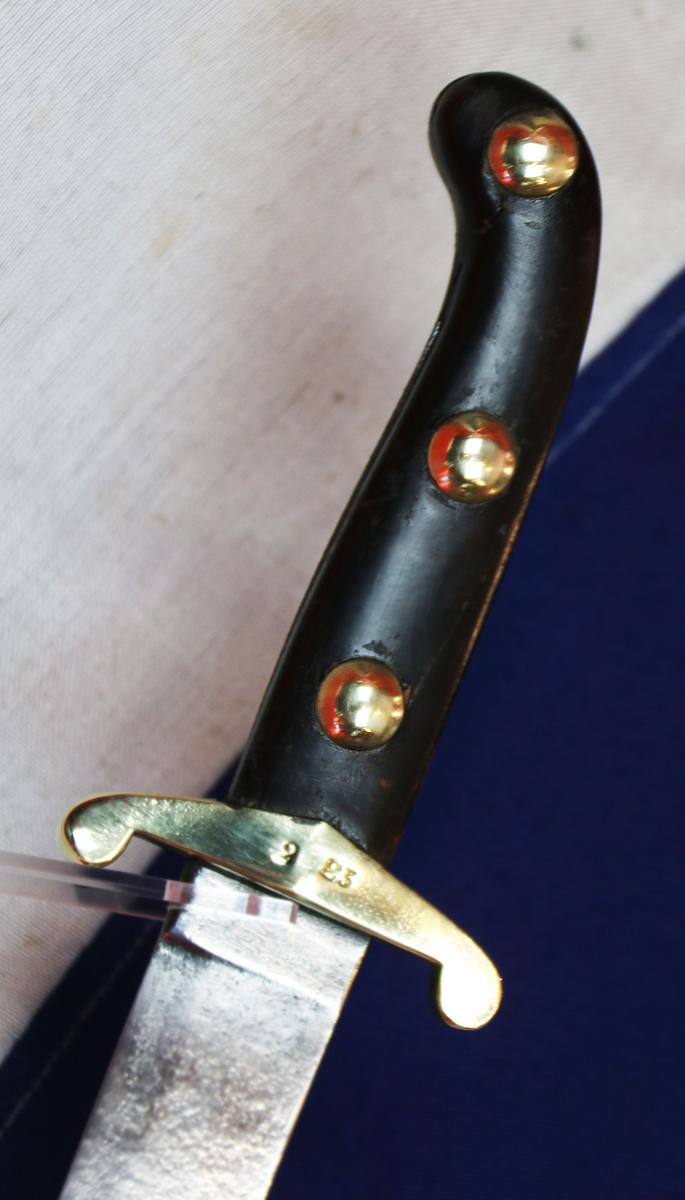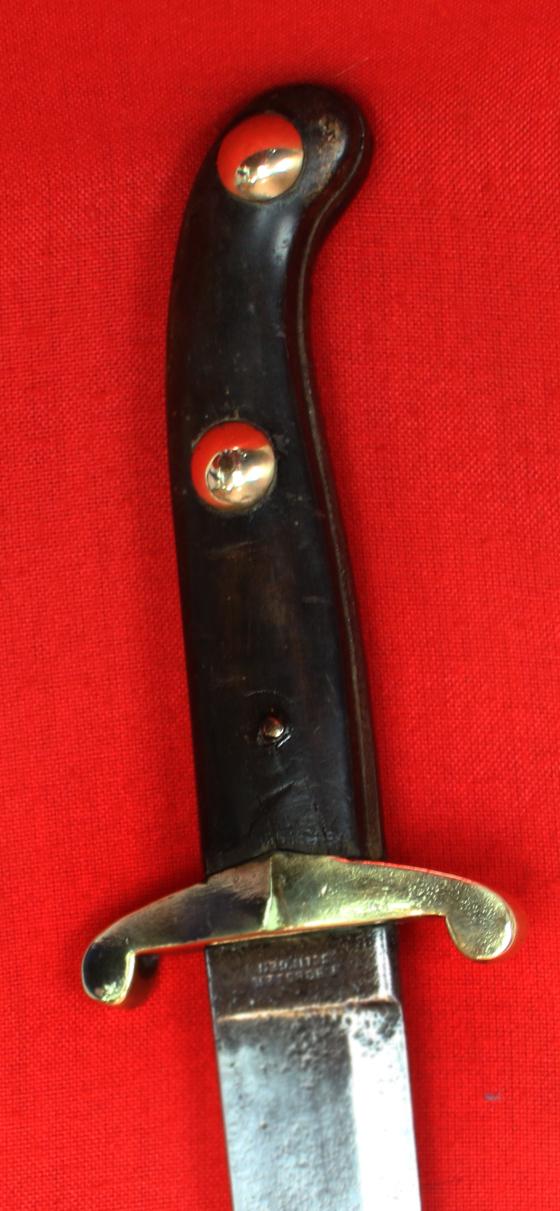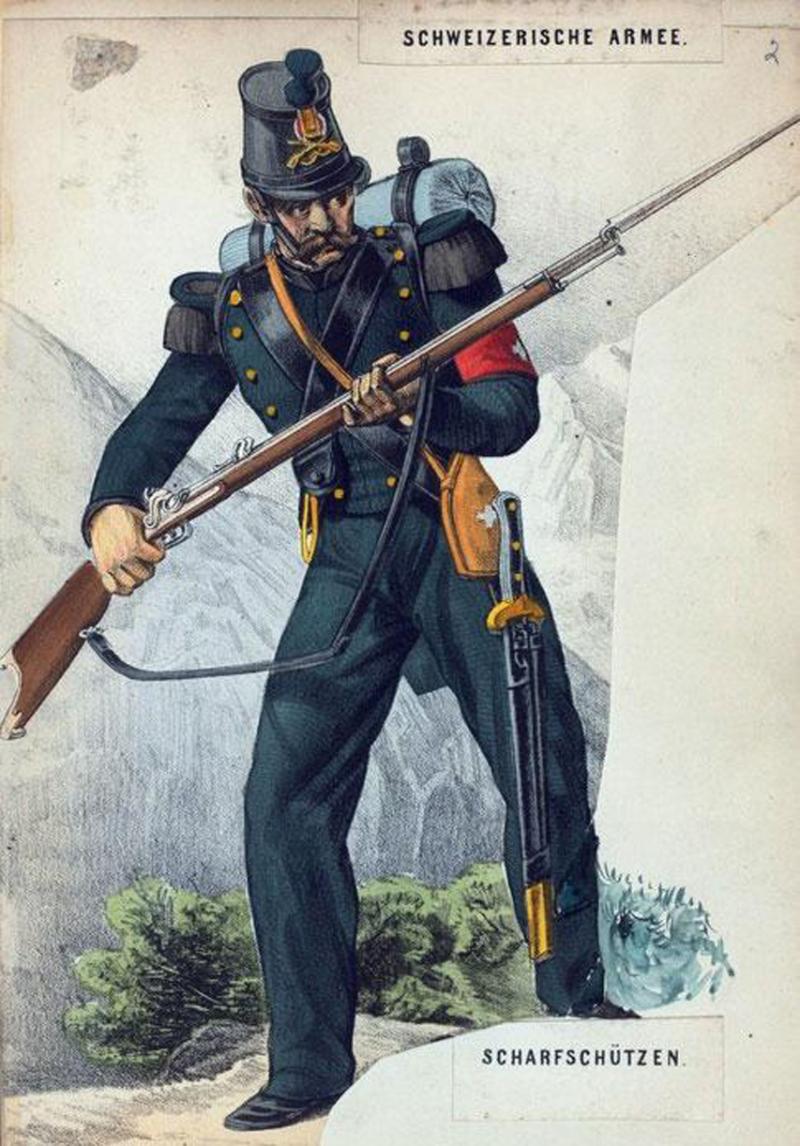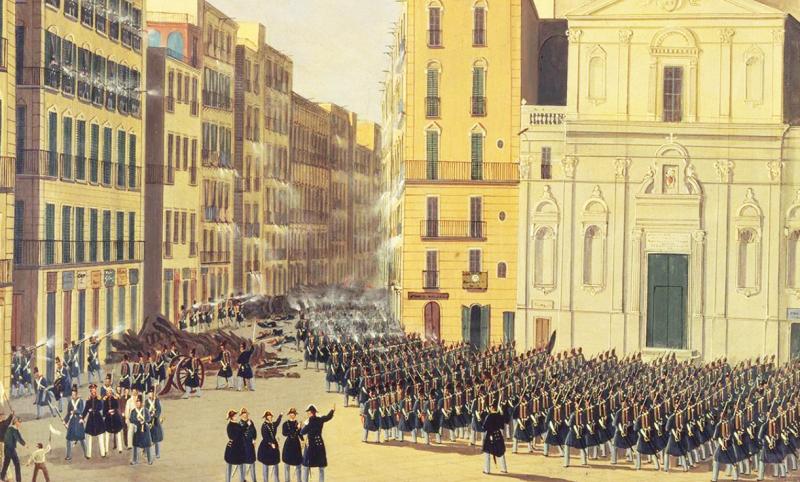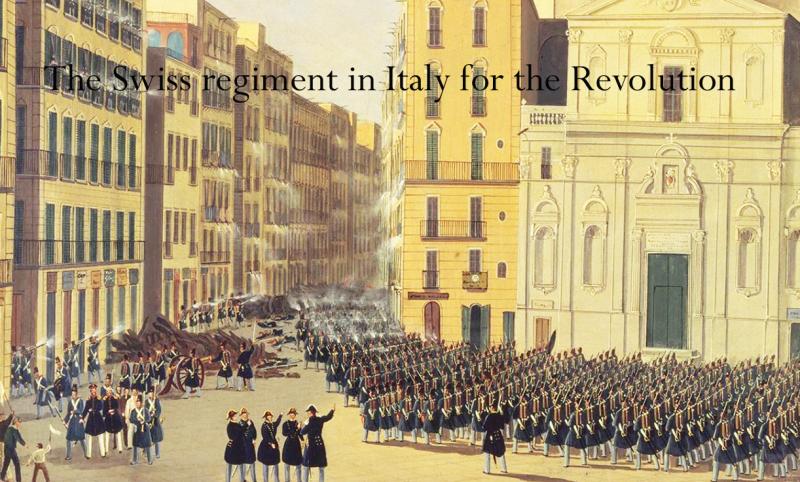A Most Scarce Original Antique Sharpshooter's Sword Used By Swiss Mercenaries In the 1849 Italian Revolution. Made by F Horster of Solingen
Wooden grip with brass rivets. Single edged blade made by Horster of Solingen. Carried by the Swiss Infantry sharpshooters, snipers.
Used by of the swiss regimental sharpshooter mercenaries that fought for the King in the revolution in Italy in 1848.
A Swiss regiment that fought in the streets of Naples for Ferdinand II, King of the two Kingdoms of Sicily, during the uprising of 15 May 1848. Between 1856 and 1860, around 1,200 Swiss mercenaries from the Swiss regiments in Naples continued their military careers in the Dutch colonial army.
The Revolution which began in Palermo was one of a series of such events in Italy, though perhaps more violent than others. It quickly spread across the island and throughout Italy, where it prompted Charles Albert, King of Sardinia, to follow the example of Ferdinand II and issue a written constitution, the Albertine Statute {the Albertine Statute later became the constitution of the unified Kingdom of Italy and remained in force, with changes, until 1948}. In imitation of these events, riots and revolutions followed around Europe at the same time, and may be considered a taste of the socialist revolts to come.
King Ferdinand II of the Two Sicilies
By the recapture of Sicily in May 1849, the battle was said to be practically over. Filangieri, however, dared not let his troops enter the set of alleys that then made up the historic center of Messina: although the regular Sicilian forces had been exterminated or forced to flee, the bombardment of the Bourbons continued on the defenseless city, that is, on the part that had not yet been occupied by the regi, for another seven hours. The soldiers of the Bourbon army gave themselves up to the looting and violence against the inhabitants.
Homes of foreigners living in Messina were also looted and destroyed, so much so that the English consul Barker reported the incident to his government writing that many English subjects living there were reduced to ruin and that even a diplomat, the consul of Greece and Bavaria M. G.M. Rillian, despite being in uniform, had been wounded by sabre, before his dwelling was also looted and burned down. The Bourbon troops did not spare even the religious buildings from looting. For example, the church of San Domenico, rich in works of art, was first looted of its sacred objects, then burned down and totally destroyed. Loss of life was incalculable. A Bourbon official wrote to his brother, immediately after the capture of Messina, stating that the Neapolitan departments had recaptured the city with a very intense fire and "trampling corpses in every step that progressed for the space of about two miles" and then commenting "What a horror! What a fire! British Admiral Parker also condemned the work of the Bourbons, and in particular the prolonged terrorist bombardment of the city even after the end of all resistance for eight hours: "The greatest ferocity was shown by the Neapolitans, whose fury was incessant for eight hours, after all resistance had ceased".
During the siege of Messina, the last insurgents who resisted the attack of the Bourbons inside a convent, rather than hand themselves over, chose to throw themselves into a well, taking their tricolour flags with them. Messina was also troubled by the work of common criminals sent by King Ferdinand II to Sicily against the insurgents and that after tormenting the Sicilians for months with brigand actions (crimes, violence, thefts, etc.) they gave themselves at the time of the fall of the city to its looting, arriving with small boats from Calabria to make loot.
Overall in nice condition, with old traces of pitting throughout the blade , one rivet cap lacking, no scabbard. A very rarely seen sword.
Every single item from The Lanes Armoury, Britain's famous, favourite, and oldest original Armoury Antique store, is accompanied by our unique Certificate of Authenticity. Part of our continued dedication to maintain the standards forged by us over the past 100 years of our family’s trading, and thus, it is a lifetime guarantee.
Code: 25907
355.00 GBP


